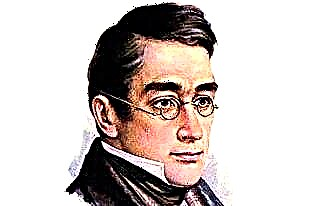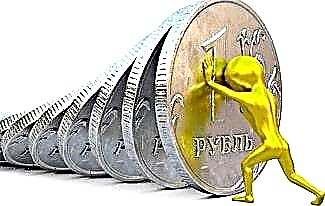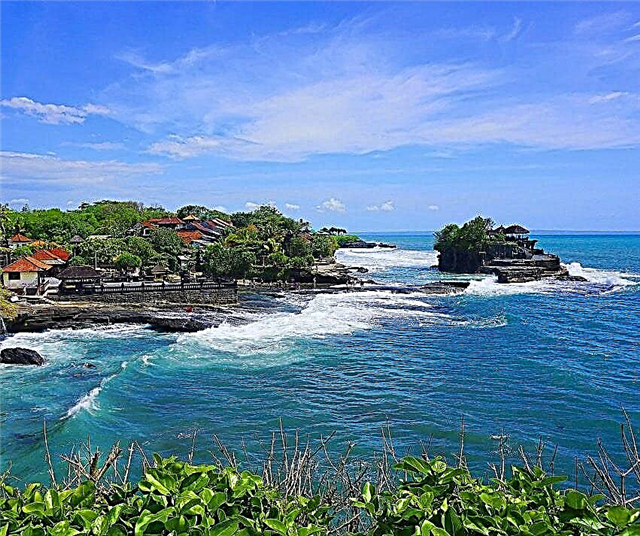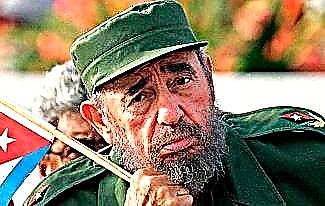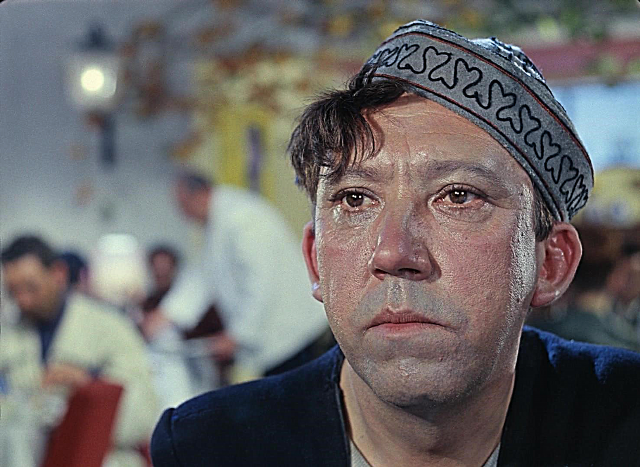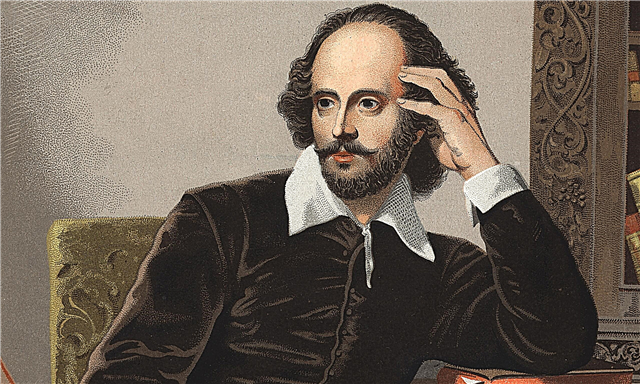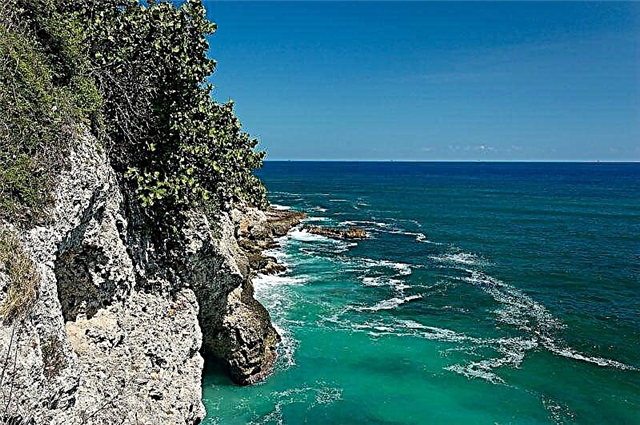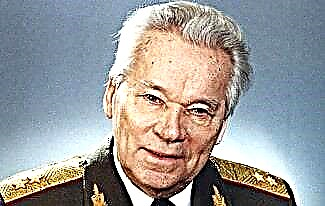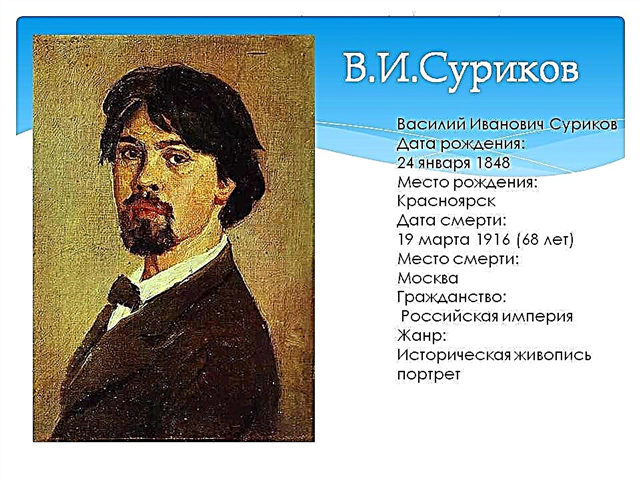Jean-Jacques Rousseau (1712-1778) - Franco-Swiss philosopher, writer and thinker of the Enlightenment. The brightest representative of sentimentalism.
Rousseau is called the forerunner of the French Revolution. He preached a "return to nature" and called for the establishment of complete social equality.

There are many interesting facts in the biography of Jean-Jacques Rousseau, which we will talk about in this article.
So, here is a short biography of Jean-Jacques Rousseau.
Biography of Jean-Jacques Rousseau
Jean-Jacques Rousseau was born on June 28, 1712 in Geneva. His mother, Suzanne Bernard, died in childbirth, as a result of which his father Isaac Russo was involved in the upbringing of the future philosopher. The head of the family worked as a watchmaker and dance teacher.
Childhood and youth
Isaac's favorite child was Jean-Jacques, which is why he often spent his free time with him. Together with his son, the father studied the pastoral novel by Honoré d'Urfe "Astrea", which was considered the largest monument of precision literature of the 17th century.
In addition, they loved to read the biographies of ancient personalities as presented by Plutarch. An interesting fact is that imagining himself as an ancient Roman hero Scovola, Jean-Jacques deliberately burned his hand.
Due to an armed attack on a man, Russo Sr. was forced to flee from the city. As a result, the maternal uncle took up the upbringing of the boy.

When Jean-Jacques was about 11 years old, he was sent to the Protestant boarding house Lambercier, where he spent about 1 year. After that, he studied with a notary, and then with an engraver. During that period of his biography, Russo seriously engaged in self-education, reading books every day.
As the teenager read even during working hours, he was often subjected to harsh treatment of himself. According to Jean-Jacques, this led to the fact that he learned to hypocrite, lie and steal different things.
In the spring of 1728, 16-year-old Rousseau decides to flee Geneva. He soon met a Catholic priest who encouraged him to convert to Catholicism. He spent about 4 months within the walls of the monastery, where proselytes were trained.
Then Jean-Jacques Rousseau began to serve as a footman in an aristocratic family, where he was treated with respect. Moreover, the son of the count taught him Italian and studied with him the poems of Virgil.
Over time, Russo settled with the 30-year-old Mrs. Varane, whom he called his "mother". The woman taught him writing and good manners. In addition, she arranged for him to a seminary, and then gave him to learn to play the organ to one musician.
Later Jean-Jacques Rousseau traveled through Switzerland for more than 2 years, experiencing serious financial difficulties. It is worth noting that he wandered on foot and slept on the street, enjoying solitude with nature.
Philosophy and Literature
Before becoming a philosopher, Rousseau managed to work as a secretary and home tutor. In those years of his biography, he began to show the first signs of misanthropy - alienation from people and hatred of them.
The guy liked to get up early in the morning, work in the garden, and also watch animals, birds and insects.
Soon Jean-Jacques became interested in writing, preaching his ideas for life. In works such as The Social Contract, New Eloise and Emile, he sought to explain to the reader the reason for the existence of social inequality.

Rousseau was the first to try to determine whether there was a contractual way of forming statehood. He also argued that laws should protect citizens from the government, which has no right to violate them. Moreover, he suggested that people themselves adopt bills, which would allow them to control the behavior of officials.
Jean-Jacques Rousseau's ideas led to major changes in the state system. Referendums began to be held, the terms of parliamentary powers were reduced, the people's legislative initiative was introduced, and much more.
One of the fundamental works of the philosopher is considered "New Eloise". The author himself called this book the best work created in the epistolary genre. This work consisted of 163 letters and was enthusiastically received in France. It was after this that Jean-Jacques began to be called the father of romanticism in philosophy.
During his stay in France, he met such prominent personalities as Paul Holbach, Denis Diderot, Jean d'Alembert, Grimm and other celebrities.
In 1749, while in prison, Rousseau came across a competition that was described in a newspaper. The theme of the competition seemed very close to him and sounded like this: "Did the development of sciences and arts contribute to the deterioration of morals or, on the contrary, contributed to their improvement?"
This prompted Jean-Jacques to write new works. The opera The Village Wizard (1753) brought him considerable fame. The lyrics and the depth of the melody fully revealed the village soul. An interesting fact is that Louis 15 himself hummed Coletta's aria from this opera.
At the same time, The Village Sorcerer, like the Discourses, brought many problems to Rousseau's life. Grimm and Holbach spoke negatively about the work of the philosopher. They blamed him for the plebeian democracy present in these works.
Biographers studied with great interest the autobiographical creation of Jean-Jacques Rousseau - "Confession". The author spoke frankly about the strengths and weaknesses of his personality, which won over the reader.
Pedagogy
Jean-Jacques Rousseau promoted the image of a natural person who is not influenced by social conditions. He said that upbringing primarily affects the development of a child. He expounded his pedagogical ideas in detail in the treatise "Emil, or On Education".
The educational system of that time was repeatedly criticized by the thinker. In particular, he spoke negatively about the fact that the center of upbringing and customs is churchliness, and not democracy.

Rousseau stated that, first of all, it is necessary to help the child develop his natural talents, considering this to be the most important factor in education. He also argued that from birth to death, a person continuously reveals new qualities in himself and changes his worldview.
Consequently, the state needs to develop educational programs taking this factor into account. A righteous Christian and a law-abiding person is not what a person needs. Rousseau sincerely believed that there are oppressed and oppressors, and not the fatherland or citizens.
Jean-Jacques encouraged fathers and mothers to teach children to work, develop self-respect and strive for independence. At the same time, one should not follow the child's lead when he begins to be capricious and insist on his own.
Adolescents who should feel responsible for their actions and love work deserve no less attention. Thanks to this, they will be able to feed themselves in the future. It is worth noting that under labor education, the philosopher also meant the intellectual, moral and physical development of a person.

Jean-Jacques Rousseau advised instilling certain qualities in a child that correspond to a particular stage of his growing up. Up to two years old - physical development, from 2 to 12 - sensual, from 12 to 15 - intellectual, from 15 to 18 years - moral.
The heads of the family had to maintain patience and perseverance, but at the same time not "break" the child, instilling in him the wrong values of modern society. To keep the health of children strong, they should be encouraged to do gymnastics and temper.
In adolescence, a person should learn about the world around him with the help of the senses, and not through reading literature. Reading has some benefits, but at this age it will lead to the fact that the writer will begin to think for a teenager, and not himself.
As a result, the individual will not be able to develop his thinking and will begin to take on faith everything that he will hear from the outside. For a child to become smart, parents or caregivers must build a relationship of trust with him. If they succeed, the boy or girl themselves will want to ask questions and share their experiences.
Among the most important subjects that children should study, Rousseau singled out: geography, biology, chemistry and physics. During the transitional age, a person is especially emotional and sensitive, so parents should not overdo it with moralizing, but strive to instill moral values in a teenager.
When a boy or girl reaches the age of 20, they should be introduced to social responsibilities. An interesting fact is that this stage was not required for the girls. Civil obligations are primarily designed for men.
In pedagogy, the ideas of Jean-Jacques Rousseau became revolutionary, as a result of which the government considered them dangerous for society. It is curious that the work "Emil, or On Education" was burned, and its author was ordered to be arrested.
Thanks to a happy coincidence, Rousseau managed to escape to Switzerland. However, his views had a huge impact on the pedagogical system of that era.
Personal life
Jean-Jacques's wife was Teresa Levasseur, who was a servant in a Paris hotel. She came from a peasant family and, unlike her husband, did not differ in special intelligence and ingenuity. Interestingly, she couldn't even tell what time it was.
Rousseau openly stated that he never loved Teresa, having married her only after 20 years of married life.

According to the man, he had five children, all of whom were sent to an orphanage. Jean-Jacques justified this by the fact that he had no money to feed the children, as a result of which they would not allow him to work in peace.
Rousseau also added that he prefers to make of the offspring of peasants, rather than adventurers, which he himself was. It is worth noting that there are no facts that he really had children.
Death
Jean-Jacques Rousseau died on July 2, 1778 at the age of 66 in the country residence of Chateau d'Hermenonville. His close friend, the Marquis de Girardin, brought him here in 1777, who wanted to improve the thinker's health.
For his sake, the marquis even organized a concert on an island located in the park. Russo liked this place so much that he asked a friend to bury him here.
During the French Revolution, the remains of Jean-Jacques Rousseau were moved to the Pantheon. But 20 years later, 2 fanatics stole his ashes and threw them into a pit of lime.
Photo by Jean-Jacques Rousseau




